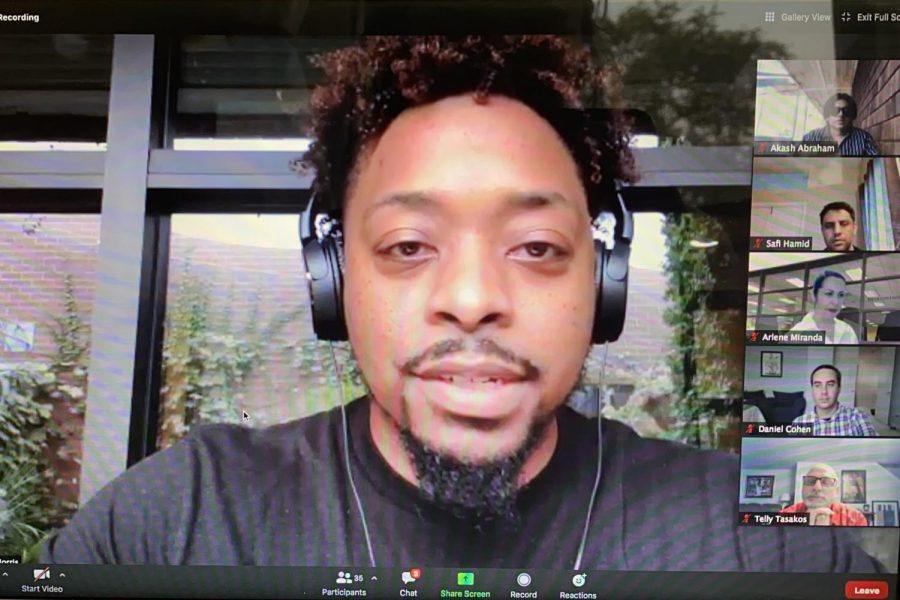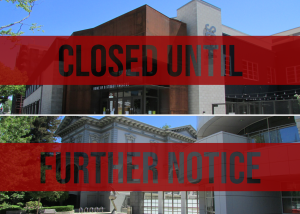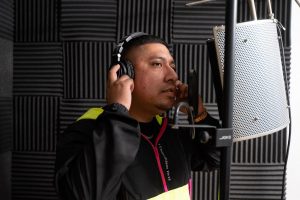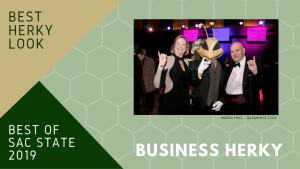Sac State alumni featured on ‘Shark Tank’ speak on student entrepreneurial panel
Student entrepreneurs give advice on leading with an entrepreneurial mindset
Screenshot via Zoom
Donte Morris speaks to a virtual audience about him and his twin brother’s app “HoopMaps” during an entrepreneurship event put on by Sacramento State’s Carlsen Center on Friday, Sept. 11, 2020. The event also featured a panel of three Sac State students who are working on starting business of their own.
September 12, 2020
Sacramento State’s Carlsen Center for Innovation and Entrepreneurship hosted a panel with alumni and students via Zoom Friday to discuss the importance of leading with an entrepreneurial mindset.
The event featured Sac State alumni Donte and Dominic Morris — twin brothers and entrepreneurs who founded a basketball app company called HoopMaps. Three Sac State students who are developing new businesses also spoke on a panel at the event.
Donte and Dominic Morris presented their app, HoopMaps, on the television show “Shark Tank.” HoopMaps is a mobile app that allows people to find pick-up basketball games in the area according to Donte Morris.
Story continues below video.
Donte and Dominic Morris explained that prior to appearing on “Shark Tank,” speakers must pitch their business in front of a lawyer, business analyst, and showrunner or executive producer.
“For every five or six entrepreneurs that go on to the show, there is a good 20 that pitch in front of those guys that don’t make it on the show,” said Dominic Morris.
Donte and Dominic were cast to be contestants on “Shark Tank” and pitched HoopMaps on air.
While Donte and Dominic Morris were not offered financial help from the Sharks, they were able to network through their appearance on the show.
Donte Morris said they made it clear in their pitch on “Shark Tank” that they had a vision and they were not going to stop. That tenacity impressed Mark Cuban.
“In his mind, he made that connection and he ended up helping us out,” said Donte Morris. “Mark Cuban connected us to Ice Cube.”
Dominic and Donte Morris collaborated with actor and musician Ice Cube for the Big 3’s four point challenge according to Donte Morris. Big 3 is a professional three on three basketball league founded by Ice Cube.
“You never know what a network can cash in,” said Donte Morris.
The panel of student entrepreneurs, who have worked with the Carlsen Center to build their businesses, included Jordyn Cornet, A.Z. Nicdao and Garrett Votaw.
Cornet, a fashion merchandising and management major, is currently developing a clothing brand called Soutni, and hopes to launch in a year or two.
“Soutni is a sustainable clothing brand and platform for people to come in and learn more about sustainable and slow fashion,” Cornet said.
Story continues below tweet.
Jordyn Cornet, student panelist and founder of Soutni, says that entrepreneurship involves a lot of self-motivation. @TheStateHornet pic.twitter.com/jYJQCgIhhM
— Jenna Cooper (@jelizabethcoop) September 11, 2020
Cornet discussed the traits she finds valuable when starting a business.
“I feel like you need to come in with that entrepreneurial mindset so you can make that business better whether or not you are the owner, creator or assistant,” Cornet said. “You also have to be resilient and persevere through periods of feeling stuck in business obstacles.”
Nicdao, a management information systems major, co-founded Stair. Stair is a financial technology company that “aggregates public investment data and uses that data to create utility for investors,” Nicdao said.

“A lot of entrepreneurship is just pushing through challenges and thinking of creative solutions,” Nicdao said.
Garrett Votaw, a business major with an emphasis in entrepreneurship, founded Switch.
“Switch is an accreditation platform for socially conscious users,” Votaw said. “We help provide transparency, enabling customers to make more informed purchasing decisions.”
Switch is currently still in the developmental process, Votaw said.
The panelists discussed their appreciation for the Carlsen Center in expanding their knowledge and understanding of business.
The Carlsen Center is a place for student entrepreneurs or aspiring entrepreneurs to come and take classes and to meet with other individuals who are trying to create a new product, a new invention or have a business idea.
During COVID-19, the Carlsen Center has provided virtual opportunities for students. Being in a predominantly virtual setting due to COVID-19 has allowed students to broaden their educational opportunities by taking classes and workshops on entrepreneurship across the country, Votaw said.
Story continues below tweet.
Garrett Votaw, student panelist and entrepreneur, says, “If you are not constantly innovating you will be left behind.” pic.twitter.com/KPaTv0aiqL
— Jenna Cooper (@jelizabethcoop) September 11, 2020
Although students might have access to more programs through virtual learning, Cornet said certain resources from the Carlsen Center are not available due to COVID-19.
“The Carlsen Center was able to connect me to certain people, mentors and resources that I was able to use in the beginning stages of the business to really propel us forward,” Nicdao said.







































































































































